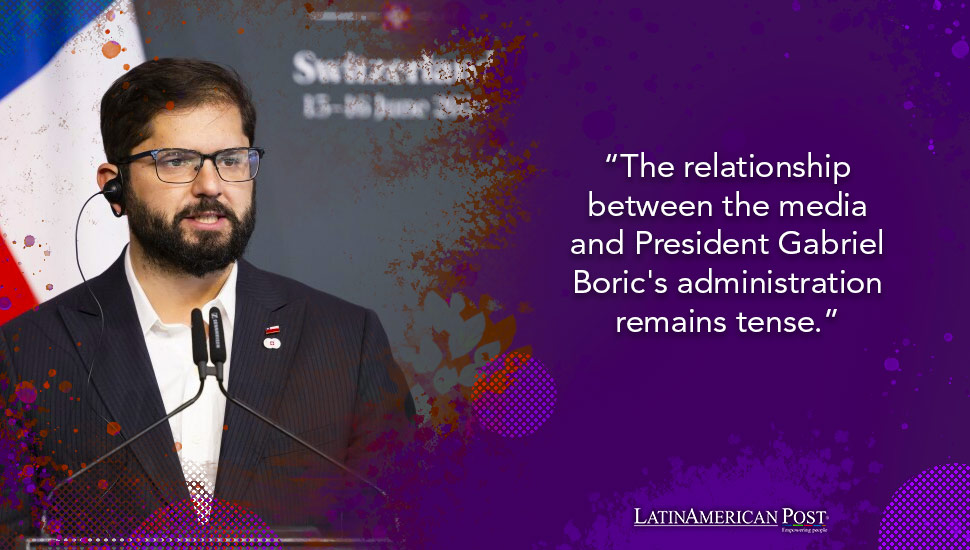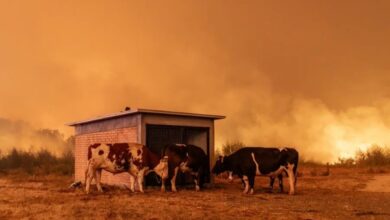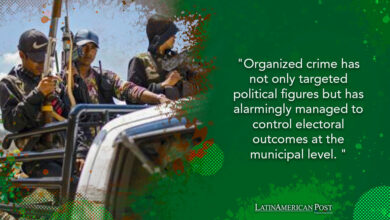Chile’s Media Landscape Faces Political Polarization and Technological Evolution

As the Digital News Report 2024 highlighted, Chile’s media landscape faces significant challenges, including political polarization, shifting news consumption habits, and integrating new technologies. The relationship between the media and President Gabriel Boric’s administration remains tense.
Chile’s media landscape is undergoing significant changes, grappling with political polarization, shifts in news consumption habits, and the integration of new technologies in news production and distribution, as highlighted in the Digital News Report 2024.
The relationship between the Chilean media and President Gabriel Boric’s government has reached a critical point during his second year in office. The administration has faced challenges with media coverage and proposed a controversial Advisory Commission against Disinformation, which has been met with widespread skepticism. This tension is emblematic of broader issues within the country, where political divisions have intensified.
In 2023, Chile marked the 50th anniversary of the coup that led to 17 years of dictatorship. This event brought heightened political polarization and strained relations between the press and the government. The Boric administration has had to navigate these tensions while attempting to address the country’s deeply rooted ideological divisions.
One of the significant challenges for the Boric administration has been the drafting of a new constitution. The process has been fraught with difficulties, with two proposed drafts—one leaning left and the other right—both being rejected in referendums. This rejection reflects the ideological schism within the country and the media’s varying levels of engagement with the process.
The Digital News Report 2024 notes that the media should have covered the second constitutional drafting process with the same enthusiasm as the first. Instead, crime has dominated the news agenda, with a study by the National Television Council of Chile showing that crime stories took up most of the airtime, except on the public channel Televisión Nacional de Chile (TVN).
Media Polarization and Public Disillusionment
This shift in focus has contributed to growing disillusionment with news and politics among the Chilean population. The second year of Boric’s administration has been marked by a tense relationship with the press. In a public speech, Boric criticized the media’s preference for bad news, prompting backlash from national and international journalistic organizations. Boric defended his remarks as an invitation to reconsider news priorities.
The debate over the proposed Advisory Commission against Disinformation further fueled these tensions. Journalists, academics, and politicians viewed the commission skeptically, fearing it might stifle press freedom. Despite these concerns, the commission, comprising experts from various fields, completed its work, producing reports that compiled academic research and international experiences.
In 2023, Chile commemorated 50 years since the bombing of La Moneda and the start of Augusto Pinochet’s military dictatorship. The National Institute of Human Rights and the National Television Council issued guidelines for covering this anniversary, emphasizing the importance of acknowledging human rights violations during the dictatorship and the media’s duty to avoid disinformation and hate speech.
Special media coverage included archives and documentary research to tell previously untold stories. This effort involved collaborations with NGOs, museums, and universities, leading to innovative digital products like dramatic audio recreations and combined physical and digital experiences.
Changing News Consumption Habits
Television news consumption in Chile saw a slight increase, possibly driven by the coverage of the 2023 Pan American Games held in Santiago. Despite this, the media landscape remains heavily centralized in the capital. However, local outlets like Timeline in Antofagasta have gained national attention by exposing corruption scandals.
Major newspaper conglomerates La Tercera and El Mercurio continue to dominate. At the same time, new players, such as Spain’s Grupo Prisa, have entered the market with online editions and podcasts. Innovative initiatives like Copano.news and WazNews are leveraging artificial intelligence for news production and distribution, showcasing the evolving nature of news delivery.
Chile’s media environment is at a crossroads, navigating the challenges of political polarization and technological advancement. The Boric administration’s relationship with the media highlights the difficulties of governing a deeply divided country. While the push for a new constitution aimed to address these divisions, the media’s varied coverage and public response reflect broader societal issues.
The focus on crime in news coverage underscores a shift in media priorities, possibly contributing to public disillusionment. Addressing this requires a balanced approach that considers the importance of comprehensive news coverage, including political processes and historical context.
The Role of Technology in Media Evolution
Integrating new technologies in news production and distribution represents both an opportunity and a challenge for the Chilean media. Artificial intelligence and digital innovations can enhance news delivery and engage audiences in new ways. However, these advancements must be balanced with a commitment to journalistic integrity and the avoidance of disinformation.
Initiatives like Copano.news and WazNews demonstrate the potential of technology to transform news delivery. These platforms use AI to streamline production and reach audiences more effectively, highlighting the importance of adapting to changing consumption habits.
Chile’s media landscape is typical in its challenges. Across Latin America, countries are grappling with similar issues of political polarization, media centralization, and the impact of new technologies. The region’s historical context, marked by dictatorships and democratic transitions, continues to influence current media practices and government relations.
In many Latin American countries, media outlets face pressure from political entities and economic constraints, affecting their ability to operate independently. The rise of digital media and social platforms has provided new avenues for information dissemination and introduced challenges related to misinformation and audience fragmentation.
Chile’s experience offers insights into the broader Latin American context, where media freedom and journalistic integrity remain critical issues. The country’s efforts to navigate political tensions, technological changes, and evolving news consumption habits reflect a regional struggle to balance the need for accurate information with the pressures of political and economic realities.
Striving for Balance
Chile’s media landscape is a microcosm of Latin American journalism’s broader challenges. The tensions between the government and the press, the struggle for a new constitution, and the integration of new technologies highlight the complexities of navigating a rapidly changing environment.
Also read: Chiloé’s Cultural and Natural Riches Drive Rural Tourism Boom in Chile
As Chile continues to evolve, finding a balance between comprehensive news coverage, technological innovation, and journalistic integrity will be crucial. The lessons learned from Chile’s experience can inform broader efforts across Latin America to foster a media environment that supports democratic values, promotes accurate information, and meaningfully engages the public.





